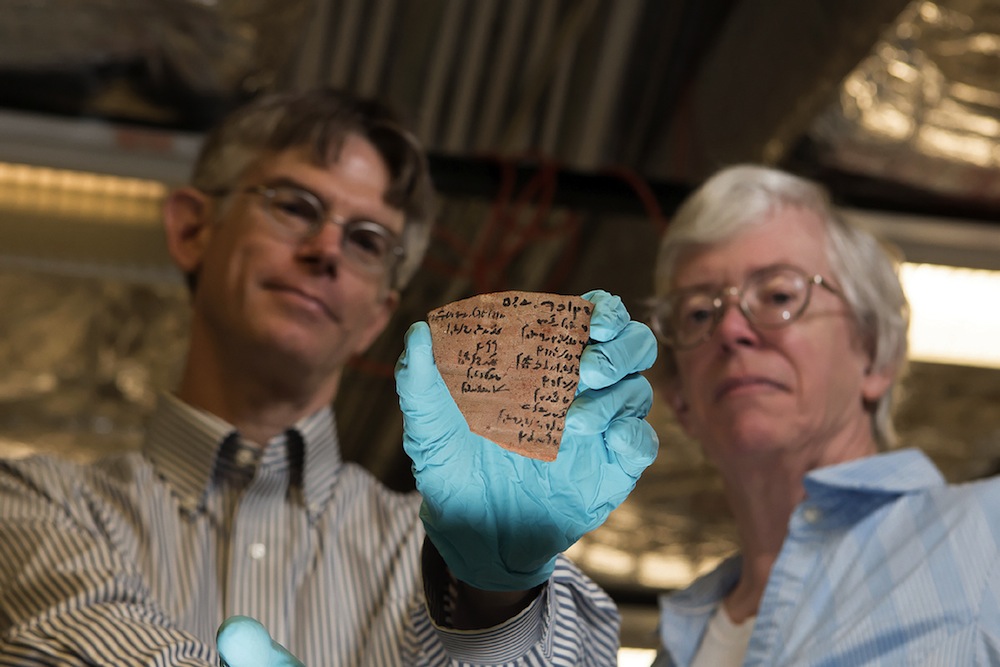Daily Lives of Ancient Egyptians Translated in New Dictionary

Get the world’s most fascinating discoveries delivered straight to your inbox.
You are now subscribed
Your newsletter sign-up was successful
Want to add more newsletters?

Delivered Daily
Daily Newsletter
Sign up for the latest discoveries, groundbreaking research and fascinating breakthroughs that impact you and the wider world direct to your inbox.

Once a week
Life's Little Mysteries
Feed your curiosity with an exclusive mystery every week, solved with science and delivered direct to your inbox before it's seen anywhere else.

Once a week
How It Works
Sign up to our free science & technology newsletter for your weekly fix of fascinating articles, quick quizzes, amazing images, and more

Delivered daily
Space.com Newsletter
Breaking space news, the latest updates on rocket launches, skywatching events and more!

Once a month
Watch This Space
Sign up to our monthly entertainment newsletter to keep up with all our coverage of the latest sci-fi and space movies, tv shows, games and books.

Once a week
Night Sky This Week
Discover this week's must-see night sky events, moon phases, and stunning astrophotos. Sign up for our skywatching newsletter and explore the universe with us!
Join the club
Get full access to premium articles, exclusive features and a growing list of member rewards.
A 37-year project to compile a dictionary of an ancient Egyptian script used for daily communication has been completed, offering an unprecedented look at the words of ordinary ancient Egyptians.
The Chicago Demotic Dictionary, so named because it was created by University of Chicago researchers, translates Demotic Egyptian, the tongue of common Egyptians from about 500 B.C. to A.D. 500.
Demotic was used in everyday Egyptian documents and letters, said Janet Johnson, a University of Chicago Egyptologist. The researchers compiled the words in the dictionary from Demotic on stone carvings, papyrus and broken fragments of pottery.
"Personal documents (letters, tax receipts, accounts, legal texts, etc.), administrative documents, and literary, scientific and religious texts were all written in Demotic and provide a wealth of information about the Egyptian-speaking population in Egypt," Johnson told LiveScience in an email.
The language was a prominent one during Greek and Roman occupation of Egypt in this period. Along with hieroglyphs and Greek, Demotic is one of the three languages on the famous Rosetta Stone, which helped early Egyptologists first decipher the formal hieroglyphic script.
The hardest parts about compiling a Demotic-to-English dictionary included reading the script itself, which is derived from picturelike hieroglyphs but is in cursive, Johnson said. As in English, Demotic words can also have multiple meanings, so the researchers had to differentiate between primary and secondary definitions.
"One of the major challenges has been that, through time, we have decided to include more and more information, meaning that the project has taken much longer than originally anticipated," Johnson said.
Get the world’s most fascinating discoveries delivered straight to your inbox.
The dictionary is available online. The idea, Johnson said, is that scholars can use the dictionary to translate and publish unpublished Demotic texts, as well as to do work on contemporary languages.
"The dictionary will be very useful, as there are more unpublished documents in Demotic than any other phase of ancient Egypt," James Allen, a Brown University Egyptologist, said in a statement.
Demotic survives today in a few English words, including "adobe," the Demotic word for brick, which was picked up by Arabic speakers and later became part of the Spanish language. The word "ebony" also has Demotic roots.
Follow Stephanie Pappas on Twitter @sipappas or LiveScience @livescience. We're also on Facebook & Google+.

Stephanie Pappas is a contributing writer for Live Science, covering topics ranging from geoscience to archaeology to the human brain and behavior. She was previously a senior writer for Live Science but is now a freelancer based in Denver, Colorado, and regularly contributes to Scientific American and The Monitor, the monthly magazine of the American Psychological Association. Stephanie received a bachelor's degree in psychology from the University of South Carolina and a graduate certificate in science communication from the University of California, Santa Cruz.
 Live Science Plus
Live Science Plus










